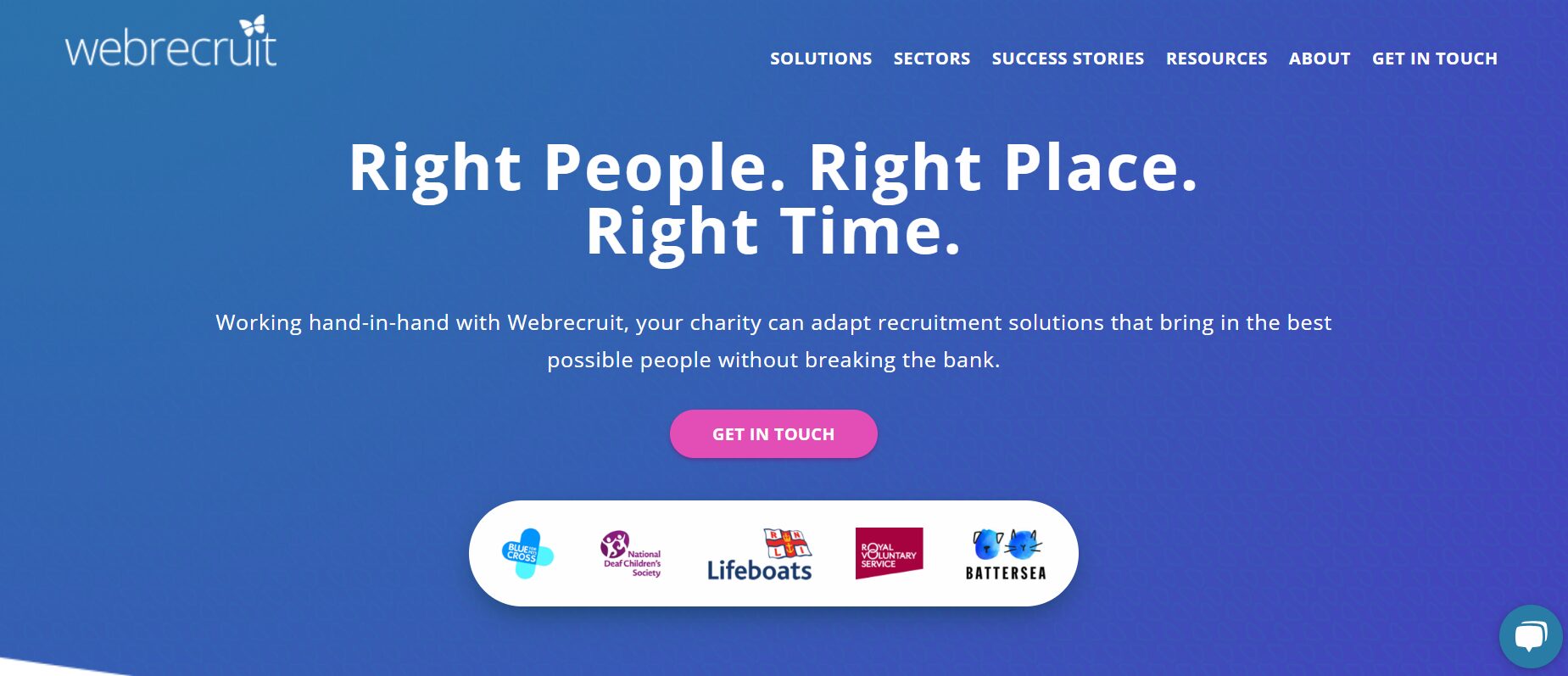Optimising Human Capital: How Fintech Drives Efficient Recruitment for Non-Profits

In any organisation, talent acquisition is a critical function that directly impacts operational efficiency and strategic objectives. For non-profit organisations, this function carries an additional layer of complexity: the imperative to recruit top-tier, mission-driven talent while adhering to stringent budget constraints. Traditional recruitment processes, often manual and time-intensive, can become a significant financial drain, underscoring the urgent need for more sophisticated, technologically driven solutions. The convergence of financial technology (Fintech) principles with human resources, often termed HRTech or Recruitment Tech, is providing powerful new avenues for charities to optimise their human capital investment.
The Financial Imperative of Smart Recruitment for Non-Profits
Inefficient recruitment poses tangible financial risks for charitable organisations. Every hour spent on manual screening, every mis-hire, and every instance of high employee turnover translates directly into lost funds that could otherwise be directed towards core mission activities.
- Budget Optimisation: Charities operate with finite resources. Recruitment technology enables a more strategic allocation of funds by reducing reliance on expensive traditional advertising channels and streamlining internal processes.
- Time as a Financial Asset: For non-profits, time is an invaluable resource. Automating recruitment tasks frees up staff to focus on critical program delivery, effectively converting operational efficiency into financial savings.
- Mitigating Turnover Costs: The cost of employee turnover, encompassing recruitment, onboarding, and lost productivity, can be substantial. Technology helps identify and attract candidates who are a better long-term fit, significantly reducing these recurring expenses.
- Maximising ROI on Talent Acquisition: By providing data-driven insights and targeted outreach, recruitment tech transforms hiring from a reactive expense into a proactive investment with measurable returns.

Key Technologies Driving Recruitment Transformation
A suite of modern technologies is reshaping how organisations, including charities, manage their recruitment lifecycle, offering solutions to long-standing financial and operational challenges:
- Applicant Tracking Systems (ATS): These platforms automate the entire applicant journey, from initial application to onboarding. By centralising candidate data, streamlining communication, and automating administrative tasks, ATS platforms significantly reduce manual workload and speed up the hiring process, cutting down on administrative costs.
- Recruitment Marketing Platforms: Leveraging digital advertising techniques, these platforms enable charities to craft targeted campaigns. This allows them to reach specific demographics and skill sets, reducing the cost-per-applicant and increasing the quality of candidates by focusing spend where it’s most effective.
- Data Analytics in HR: By collecting and analysing recruitment data, organisations can gain insights into candidate sourcing effectiveness, time-to-hire, cost-per-hire, and even predict future turnover risks. This data empowers charities to make smarter, more financially prudent hiring decisions.
- Dedicated Careers Sites: Beyond generic job boards, a branded careers site enhances an organisation’s employer identity. This often reduces the need for expensive third-party advertising, attracting mission-driven candidates directly and cost-efficiently.
- Equality, Diversity, and Inclusion (EDI) Solutions: Technology can embed EDI principles into the recruitment process, from anonymised applications to diverse candidate sourcing. This not only aligns with ethical values but also broadens the talent pool, potentially leading to more qualified and diverse hires who are better retained.

Webrecruit: Empowering Charities Through Recruitment Technology
Webrecruit exemplifies how dedicated recruitment technology providers are addressing the unique needs of the non-profit sector. They understand the critical issues charities face in attracting the right talent while operating within tight financial parameters.
Webrecruit’s approach focuses on solutions designed to bring in the best possible people without straining the budget. They aim to reduce the manual workload for charity teams, freeing them to concentrate on their core missions. By offering affordable expertise coupled with innovative technologies, Webrecruit helps organisations find the leaders they need efficiently and cost-effectively, particularly in the realm of charity recruitment.
Their offerings are structured to maximise the impact of recruitment campaigns:
- The Webrecruit Platform: An intuitive hiring platform built with charities in mind, designed to reduce costs, streamline processes, and attract more candidates.
- Applicant Tracking Systems (ATS): Their ATS software enhances the candidate journey and accelerates the internal hiring process, improving efficiency and saving administrative costs.
- Careers Site Development: They help charities build dedicated, branded careers sites, creating a positive first impression for candidates and attracting talent aligned with the organisation’s values.
- EDI Solutions: Webrecruit provides tools and technologies to boost EDI efforts, fostering an inclusive recruiting experience and expanding the talent pool.

Furthermore, Webrecruit helps charities attract mission-driven individuals faster through tailored advertising campaigns and robust marketing tools. They leverage a vast network of media outlets and job boards, built from a long history of high-volume production, connecting charities with individuals who align with their values. Their focus on data-driven recruitment allows charities to gain valuable insights into campaign performance, enabling smarter and swifter hiring decisions. Ultimately, by helping to minimise employee turnover, Webrecruit ensures that charities can retain committed candidates, avoiding the significant financial and operational disruptions associated with staff churn.
The Future of Human Capital Investment
The future of recruitment, particularly for sectors like non-profits, is increasingly intertwined with technological innovation. By embracing recruitment tech, charities can move beyond traditional, often inefficient, hiring practices. This shift allows for more strategic human capital investment, ensuring that every pound allocated to talent acquisition translates into maximised impact for their vital causes. The synergy between technology and strategic recruitment is not just about efficiency; it’s about enabling organisations to build stronger, more effective teams that can truly drive change in the world.

Source: Optimising Human Capital: How Fintech Drives Efficient Recruitment for Non-Profits

